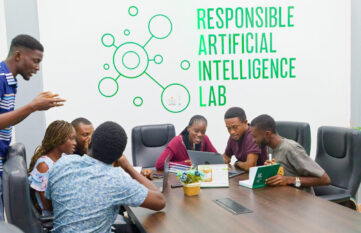EU-LAC Digital Alliance: two continents, one mission

From Cartagena to Chile: The digital future of Europe, Latin America and the Caribbean is taking shape through Cybersecurity workshops, AI dialogues and e-governance concepts. What the EU-LAC Digital Alliance partners have pushed forward this year and the guiding visions behind it:
“Few regions share as many interests as Latin America and the Caribbean and Europe” explained Carlos Iván Mendoza Aguirre, Deputy Chief of Mission at the Mexican Embassy in Chile, during the Digital Week in Santiago de Chile. The event wrapped up a second round of discussions in the context of the EU-LAC Digital Alliance, following the inaugural series of dialogues in Cartagena de Indias, Colombia in November 2023.
Looking back, the Digital Alliance Days in Cartagena marked an important milestone for the alignment of bi-regional efforts: The Alliance partners agreed on the Cartagena Conclusions, which – together with the Joint Declaration on a Digital Alliance – now serve as the guiding framework for EU-LAC digital cooperation. At the same time, a co-leadership model between LAC and EU partners was set up for the priority areas of cooperation.
The Policy Dialogues Journey in 2024
In 2024, the partners of the Alliance engaged in six high-level policy dialogues. Each dialogue concluded with a set of operational takeaways, outlining concrete and actionable next steps for EU-LAC digital cooperation.
The year began with a cybersecurity dialogue in Santo Domingo, where participants identified actions to improve national and regional cybersecurity ecosystems and foster multi-stakeholder cooperation. Capacity-building initiatives followed, including workshops and support for LAC teams in cyber competitions and information exchange. In March, the dialogue on Artificial Intelligence (AI) in Montevideo led to a study trip for civil servants from Brazil, Chile, and Uruguay to Spain and Slovenia, where the participants exchanged best practices on establishing AI-related institutions and regulatory policies.

The e-Governance dialogue in San José in May concluded with the launch of a Community of Practice on e-Governance. The co-leads of the e-Governance component wrapped up the year with a workshop on digital citizen engagement in Central America, identifying the most vulnerable groups and co-creating country-specific action plans.
In November, the 9th ECLAC Ministerial Conference in LAK, Chile, was preceded by two thematic dialogues. The connectivity dialogue led to the establishment of the EU-LAC Female Digital Policy-Makers Network strengthen women’s leadership and representation in digital policies .At the AI dialogue, the idea of an EU-LAC network for high-performance computing (HPC) was discussed. The aim of thenetwork is to encourage the interconnectivity of HPC resources between the EU and LAC and build a robust AI and HPC bi-regional community.
The accomplished and what lies ahead
The dialogues in Chile concluded with a joint stocktaking session to reflect on a year of cooperation since Cartagena. The stocktaking session provided not only a chance to reflect on the work accomplished so far, but also an opportunity to discuss the work that remains.
In the case of connectivity, the participants echoed the need for “meaningful connectivity”, a concept beyond internet access and coverage which offers a more comprehensive view of digital inclusion, considering factors such as digital skills, usage, and digital environment.
While significant progress has been made in terms of internet access and coverage, many challenges remain when we consider factors that go beyond traditional connectivity indicators.
Fernando Rojas, Head of Working Group on meaningful connectivity in the context of the Digital Agenda for LAC (eLAC)
The partners also discussed other challenges, including vulnerable telecommunications networks in view of natural disasters and cyberattacks and the rapid evolution of emerging technologies like AI. A regional response was highlighted as a critical need for greater collaboration and resilience-building to address these threats. Ultimately, the representatives also reaffirmed their commitment to placing citizens at the center of their efforts.

Raúl Domínguez at the Digital Week in Santiago de Chile, © GIZ
If a person in Chile isn’t connected, it’s because they don’t want to, not because they can’t.
Raúl Domínguez, Head of Regulatory Policy and Research at the Undersecretary of Telecommunications (SUBTEL) of Chile
In the future, not being connected should no longer result from a lack of access or opportunities. A principle that extends beyond Chile, advocating for secure, inclusive, and sustainable digital services by design in LAC and Europe.
From Dialogue to Action
This year’s Policy Dialogues Journey has not only paved the way for continued discussions but has also been accompanied by concrete actions, especially in light of the upcoming CELAC-EU Summit. That dialogue must go hand in hand with tangible actions was also emphasized by Félix Fernández-Shaw, Director for Latin America, the Caribbean and relations with all Overseas Countries and Territories at the European Commission (DG INTPA), during the closing session of the policy dialogues in Chile:
“It is crucial that we continue to translate the dialogue into practice through concrete projects between both regions.”(Félix Fernández-Shaw, Director for Latin America, the Caribbean and relations with all Overseas Countries and Territories at the European Commission (DG INTPA)).
The EU-LAC Digital Alliance Policy Dialogues are one of the four pillars of the EU-LAC Digital Alliance and are co-funded by the German Federal Ministry for Economic Cooperation and Development (BMZ) and the European Commission through the EU’s Global Gateway Investment Agenda. The D4D Hub has ensured EU Member States’ active engagement in the Alliance.


